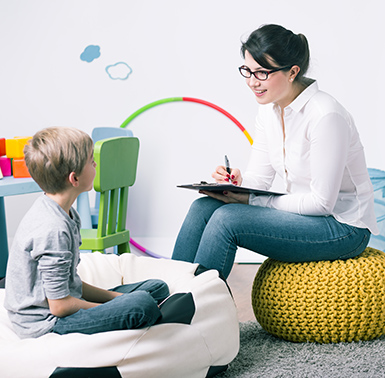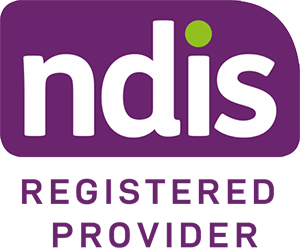Behaviour Support
All behaviour happens for a reason and behaviours of concern are no different. Behaviour is a form of communication and our role is to try and understand or determine what your child or young person is trying to communicate. Behaviour support can help children, young people, their families and carers prevent or reduce behaviours of concern, which usually occur when a child or young person is experiencing difficulties communicating their needs effectively within their environment. Behaviour support is an effective approach for supporting children and young people with a developmental delay or disability such as autism or a learning disability.
How can we help?
We are NDIS registered for Behaviour Support and deliver three main services which are functional behaviour assessment, behaviour support plans, behaviour therapy and intervention. Our experienced psychologists, behaviour support practitioners and behaviour therapy assistants use evidence-based approaches focusing on a range of preventative strategies to assist with developing new skills, communicating effectively, managing emotions and more.
Every child and young person is different, and the goals will depend on their individual needs. Some aims of behaviour support may include:
- Helping families and carers to identify causes of behaviour and how to effectively support this
- Empowering children and young people to communicate their needs in appropriate ways
- Providing children and young people with strategies to express or regulate their emotions
- Implementing environmental adaptations to support the child
- Reducing aggression and other disruptive behaviour
- Teaching appropriate replacement behaviours
- Understanding and following instructions
- Improving school performance and attention

We can help in the following areas:
A Behaviour Support Plan is a written document developed by one of our NDIS registered Behaviour Support Practitioners or Psychologists in consultation with the person, their family and those who support them. Informed by a comprehensive data collection process, it is essentially a practical “how to” support guide that outlines how to support a person and respond when they are displaying behaviours of concern. It also details clear evidence-based strategies and skill development that will reduce the persons need to use behaviours of concern in the future.
The process usually involves an initial meeting, collection of a range of data, observations of the child or young person in a natural environment, completion of a Functional Behaviour Assessment and input of all the key people involved. Once the plan is finalised and agreed by key people, Beam Health can provide ongoing therapy and intervention, for example, direct support in the home, at school or in other regular environments through our trained Behaviour Therapy Assistants.
Beam Health NDIS registered Behaviour Support Practitioners and Psychologists provide ongoing behaviour therapy aimed to bring about positive and meaningful change in behaviour. It teaches children and young people, and their families and carers, everything they need to know in order to functionally access their world. If a child or young person has the understanding of how to obtain everything he or she needs, in the most appropriate manner, he or she will use this knowledge. By being able to effectively communicate our wants and needs, challenging behaviours no longer have any purpose.
Behaviour Therapy goals and strategies may often be informed by a Behaviour Support Plan or may be working towards gaining a clear understanding of the purpose and nature of challenging behaviours. Therapy can occur at our clinic or in another more natural environment, such as home or school. Beam Health is NDIS registered for Behaviour Support.
Beam Health can also engage Speech Pathologists in a multidisciplinary team approach to strengthen the therapy support for certain children and young people.
Beam Health has trained Behaviour Therapy Assistants who provide ongoing direct behaviour support in homes, schools and other settings. Behaviour Therapy Assistants are commonly used by NDIS participants and their families for direct supports such as:
– Supports you to implement behaviour support strategies
– Implements behaviour supports strategies
– Provides direct behaviour support for families in the home
– Provides direct behaviour support for children and youth in schools and other community settings
– Coaches you to learn how to practically implement behavioural strategies
– Completes observations and monitoring to assess progress of behavioural strategies
– Develops behaviour resources e.g. visual charts, to help with behaviour change
Behaviour Therapy Assistants can also be a more cost effective and suitable alternative to behaviour therapy provided from Behaviour Support Practitioners and Psychologists.
A functional behaviour assessment (FBA) identifies where, when and the likely reasons why a behaviour of concern happens. This is often called the ‘function’ of the behaviour. The information is usually then used to inform a behaviour support plan that includes evidence-based strategies to address the reasons why the behaviour is occurring.
Functional Behaviour Assessments are conducted by qualified and skilled professionals with an understanding of why behaviours are occurring.





